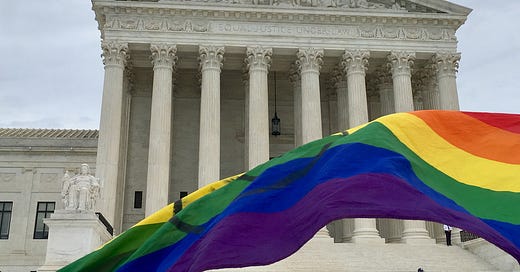My dear readers: in light of recent events, I felt it appropriate to take a week to address the elephant in the room: the potential that Roe v. Wade could be overturned, and the impact on gay marriage and LGBTQ rights. While I have used the Straight to Gay project to take a break from my work as an activist, and to share my truths and misadventures as a way to empower others and make them feel seen, this looming decision is too big to ignore. The realms of my activism and living as a gay woman have once again collided!
Keep reading with a 7-day free trial
Subscribe to Straight to Gay to keep reading this post and get 7 days of free access to the full post archives.




